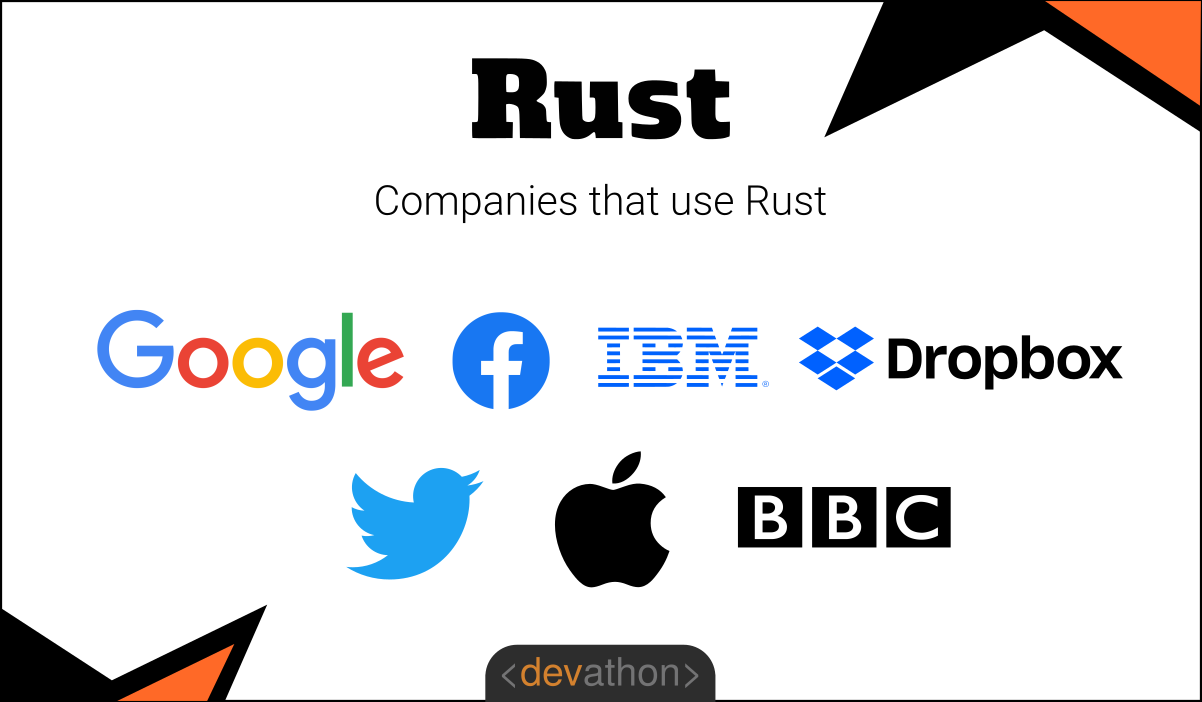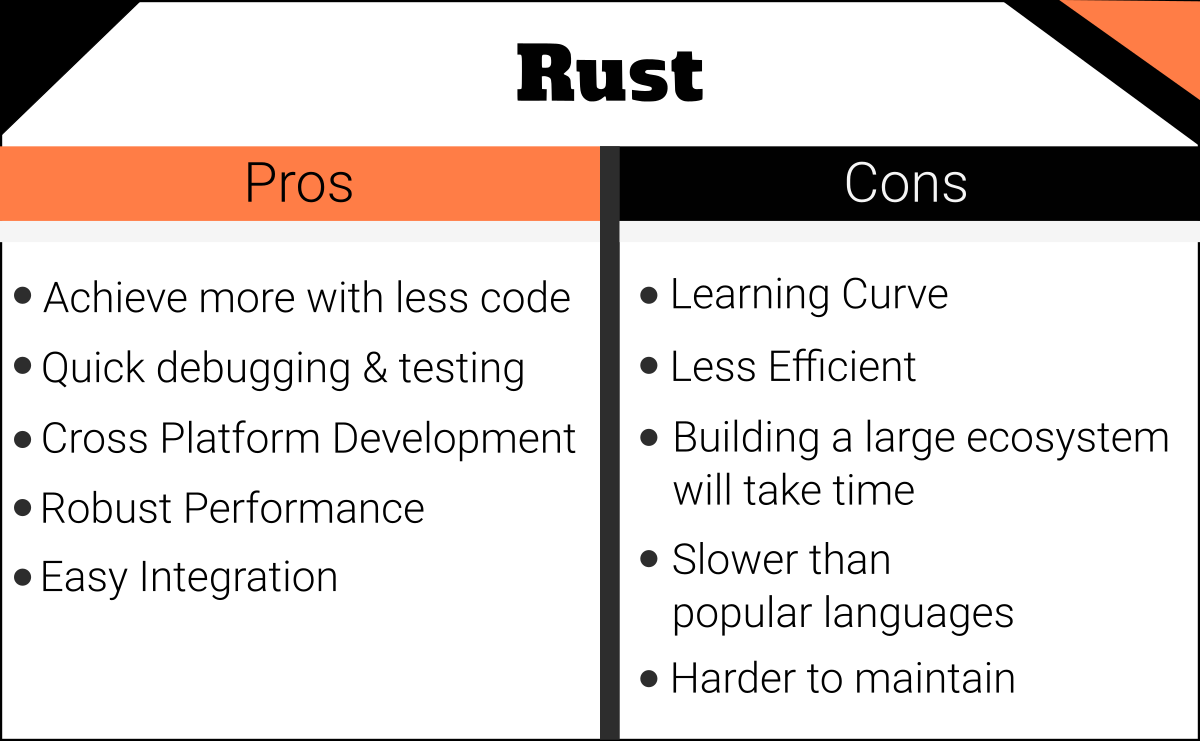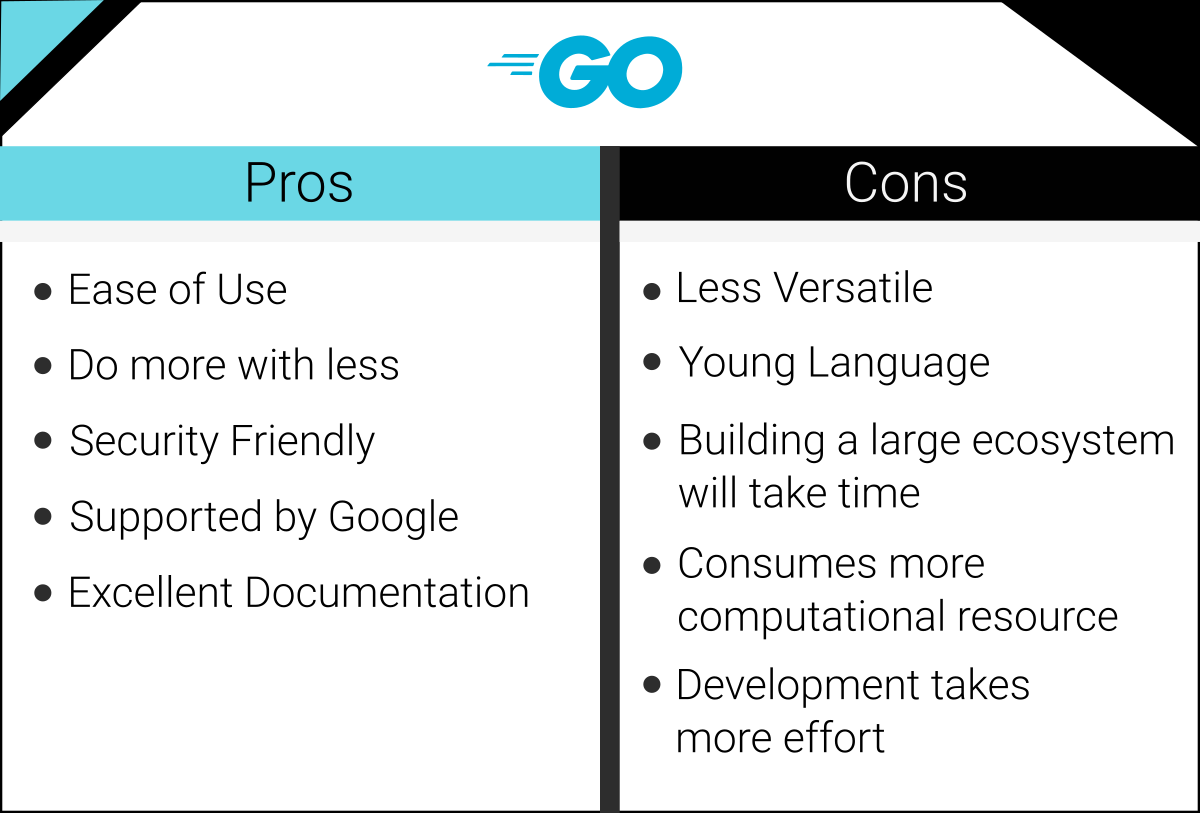A detailed comparison between Rust vs Go programming languages: What is Rust and Go, pros & cons, similarities and differences between Go and Rust, and more
Are you an entrepreneur or a senior enterprise IT leader who is planning to undertake a web development project? You might be wondering which programming language to use. In relation to this, you might have come across programming languages like Rust and Go. You are probably weighing between Rust vs Go and trying to decide which one to use in your project.
Both Rust and Go are increasingly popular languages. Which one fits your requirements better? What are their pros and cons and which one should you choose? In this guide, we answer all of these questions so that you can make an informed decision. Read on!
Rust: An introduction
Graydon Hoare designed Rust while working with Mozilla Research. There were other contributors too, e.g., Dave Harman, and Brendan Eich. Rust is a statically-typed, compiled programming language. It’s an open-source language, and its syntax is similar to that of C++.
The first release of Rust came in 2010. Since then, developers have enhanced this language significantly. At the time of this comparison, the latest stable release of Rust is 1.42.0, which came in March 2020. Several well-known organizations use Rust, e.g.:
- Mozilla;
- Dropbox;
- Qiwi;
- Brilliant;
- Sentry;
- Postmates;
- Wantedly.

Piston, the popular game is built using Rust. Mozilla is building Rust to build Servo, a new browser engine.
Rust: Where can you use it?
A relatively new language, Rust can have varied usage. You can use Rust for systems programming.
Rust offers memory safety, moreover, this statically-typed language reduces common programming errors. As a result, if you are building a large system where security is very important, then you can use Rust. By its very design, the language reduces application security vulnerabilities.
Rust also offers speed. This makes it a good candidate for developing game engines, operating systems, file systems, and browser components. Its performance also makes Rust a smart choice to build “Virtual Reality” (VR) simulation engines.
Go: An overview
Rob Pike, Robert Greisemer, and Ken Thompson developed Go jointly. They developed it in 2007 at Google, however, they launched it for the first time in 2009. Go, or “Golang” as it’s often called, is an open-source programming language. The developers of Go modeled it after C. Go is a statically-typed, compiled language.
Go has gone through several rounds and developments. At the time of writing this article, its last stable release is 1.14.1. This release came in March 2020. The following are a few examples of well-known organizations that use Go:
- Google;
- Apple;
- Facebook;
- Twitter;
- IBM;
- Dropbox;
- BBC.

A few popular applications developed in Go are Netflix, Dropbox, Docker, and Kubernetes.
Where can you use Go?
Go is a versatile language and you can use it for several purposes. To be more specific though, you can use Go whenever you need to build a highly modular application system with high security and high speed.
You can use it for system programming and network programming. The language also has prominent usage in web app development, alternatively, you can use Go in applications involving big data or machine learning.
You can use Go to create command-line apps or scripts. If you are building a large, distributed system, then you can use Go. Finally, you can use Go to build highly-scalable network servers. Go has a lot of flexibility.
The advantages and disadvantages of Rust
 What are the pros and cons of Rust? It offers the following advantages:
What are the pros and cons of Rust? It offers the following advantages:
- Achieve more while coding less: Rust supports more complexity than several other programming languages, therefore, you can achieve more with it. E.g., it supports generics. You will find it easier to build powerful web apps using Rust.
- Quicker debugging and testing: You will find debugging and testing easier with Rust.
- Rust enables cross-platform development.
- Performant: Rust offers robust performance.
- The ease of integration: You can integrate Rust easily with C and several other popular languages.
- Safer programming: Rust enables you to eliminate errors, which results in fewer application security vulnerabilities.
- Strong community support: There is a vibrant developer community that supports Rust.
There are a few disadvantages to Rust as well, which are as follows:
- Learning curve: Developers might take longer to learn Rust due to its complexities.
- Less efficient: It takes longer to compile Rust and the code can be less efficient.
- Maintenance can be harder: Since Rust has more complexities, you could end up spending more effort to maintain apps written in it.
- It will take longer to build a large ecosystem since Rust is a relatively new language. Take the case of web development frameworks for Rust. Actix, Rocket, and Nickle are some of key web development frameworks for this language. Its illustrious competitors in the market are more established, and they have many more popular frameworks.
- Limitations in comparison to leading programming languages: Rust can leak memory in some cases, moreover, it can be slower than some popular languages.
Go: Its pros and cons

Go is a popular programming language since it offers several advantages. These advantages are as follows:
- The ease of use: Programmers can understand Go easily, which results in several advantages for organizations. The language features an easy-to-use syntax, therefore, new developers can learn it easily. If you use Go, then your maintenance becomes easier.
- You can do more with less, thanks to the library of Go. Go comes with a powerful yet simple standard library. Programmers can achieve a lot without creating complex pieces of code, thanks to this library! Developers coding in Go don’t need to import secondary libraries.
- Security-friendly language: Since Go is a statically-typed language, the chances of error reduce. That’s an advantage over dynamically-typed languages with a large number of variable types and higher chances of complex coding errors. Also, code written in Go is simpler and easier to debug. The combination of these factors reduces application security vulnerabilities.
- Support from Google: Go has seen important developments and enhancements, and you can count on this trend to continue. Google supports it, and that speaks well for the future of Go.
- Excellent documentation: Not only does Go have excellent documentation, but it goes a step further. Developers that didn’t document their code sufficiently get alerts to put in place the required documentation. This adds to the maintainability of code written in Go.
#rust #go #developer
